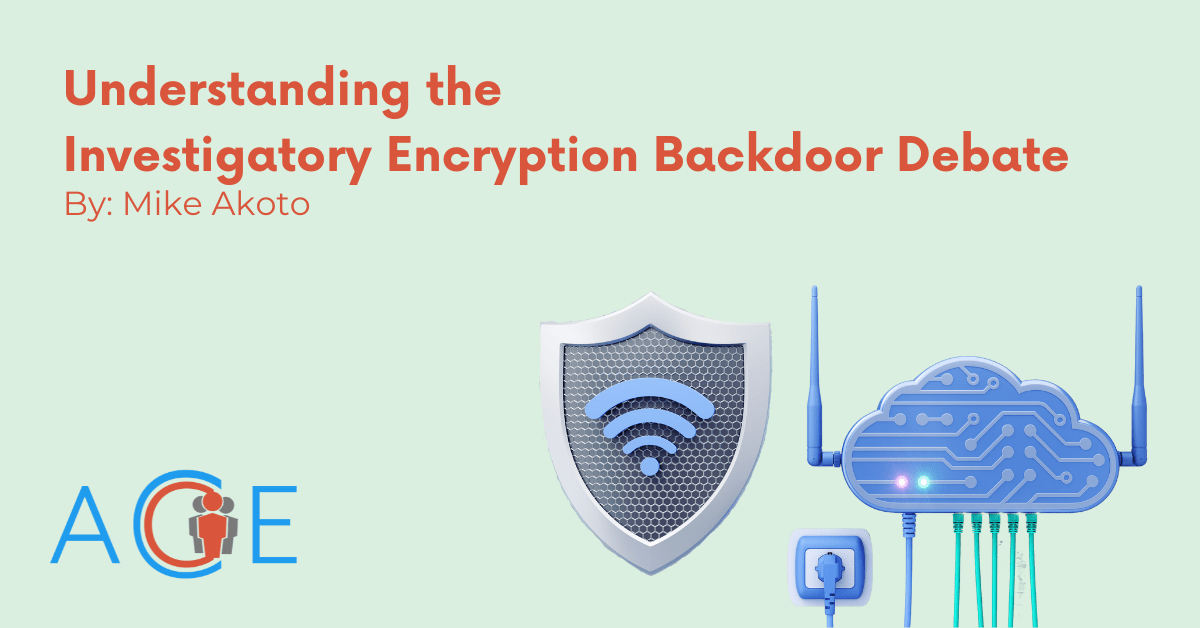Are there any real-world examples where encryption backdoors have been successfully used without compromising cybersecurity? How do different governments and tech companies approach this issue, and what are the implications for global digital security?
Are there any real-world examples where encryption backdoors have been successfully used without compromising cybersecurity?
No. Adding a backdoor to cybersecurity is fundamentally introducing a vulnerability that can be exploited by an attacker.
A backdoor in your IT security is like a hidden button to bypass the lock on the impenetrable front door of your impenetrable house. Sure, it makes the police serving a warrant easier, but now there’s a button that anyone can push to bypass your door.
What you will find are instances with no apparent violations. Just like setting all the nuclear weapons to have the exact same easily remembered activation code didn’t actually lead to a nuclear exchange.
What you *will* find are instances with no apparent violations. Just like setting all the nuclear weapons to have the exact same easily remembered activation code didn’t actually lead to a nuclear exchange.
This isn’t a great example. Not even a backdoor. That’s an example of weak security, at the final stage behind multiple layers of extremely strong security. If an adversary had got to the point where they were at an ICBM bunker console, and the only thing stopping them was a 4 digit code, it was already basically game over.
The backdoors our corporate oligarchs want have zero safeguards, and once discovered grant any attacker the keys to the entire kingdom, remotely. It’s more like the only security being the 4 digit code. It fundamentally weakens the security of everyone, and every system we rely on, to the extent any attempt to do it should be considered a direct act of war against us — as treasonous sabotage, that only our worst enemies would attempt.
I see you understood the point made by the example.
For nuclear weapons specifically, the activation code was supposed to be a command and control measure to prevent unauthorized use. Having it both be an easily remembered code and one widely known made that whole system meaningless theatre.
Please see exhibit A, the US telecoms infrastructure which has backdoors added by the alphabet agencies and has now been so thoroughly violated by Chinese hackers that they’ve basically given up trying to fix it. It would literally be easier to burn every telecom installation in the US to the ground and build new ones on the ashes than it would be to remove all the Chinese rootkits and back doors. All because someone just had to have a backdoor for the NSA/CIA/FBI.
Member when they tried to do this publicly and it only took hackers a few months to completely annihilate the most secure backdoor ever devised?
Encryption with a backdoor is no encryption.
Encryption with a backdoor is malware.
Benefits - ape gets a grenade. Risks - ape doesn’t care about risks, because it throws the grenade far enough.
Opponents point out that encryption backdoors might not significantly improve law enforcement’s
There have been cases where police was granted access to the data, but the crimes it was supposed to stop just continued. Not enough personnel, equipment, too difficult or some excuse like that. But if you don’t have enough resources to use the data in a meaningful way, why grant access?
That brings us to the next part, abuse of that data. There have been cases where the access to the data is used to go after organisers of legal protest against environment or labor. Going after certain political parties to harass them, usually left wing, also happens. And there have been cases of police using their access to stalk an ex.
It doesn’t seem to be a net positive.



